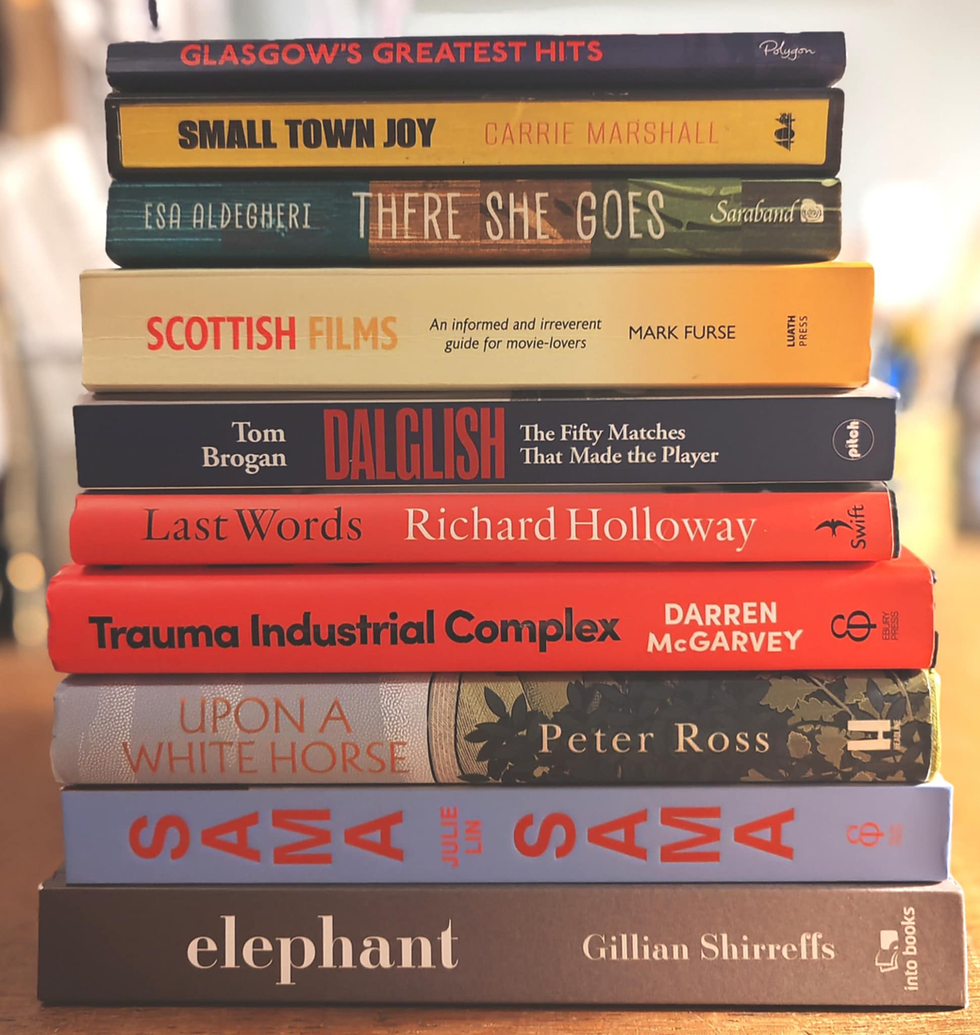Different Class: A Review Of Andrew O'Hagan's Caledonian Road...
- Alistair Braidwood

- Jul 15, 2024
- 2 min read

Few writers can boast a body of work as impressive and varied as that of Andrew O’Hagan. From the cross-generational stories in his acclaimed debut Our Fathers, through the tragic, verisimilitudinous, tale of Personality, bringing a voice to the most unlikely narrator in The Life and Opinions of Maf the Dog, and of His Friend Marilyn Monroe, right up to the incredibly personal, poetic and at times painfully moving Mayflies (which was adapted for TV). Trying to define an Andrew O’Hagan novel is a tricky, and arguably pointless, task.
His latest, Caledonian Road, is an epic novel broken down (and I use that term advisedly) into the complex lives of a cast of characters whose stories unfold, and sometimes explode, across a number of years, with the ripples far-reaching. It’s an address as to the state of the nation, and the nation is in a terrible state.
There are questions of class, capitalism, and the resulting corruption – financial and otherwise – as worlds collide and new money, and technology, meets old. Along the way notions of morality and integrity are explored, often through their absence. Campbell Flynn is the central character around whom the book hangs, not only because he links the lives of others, but because he could be considered a moral vacuum (he may even consider himself one) wittily sniping from the sidelines while others do – even when what they do is despicable – until the joke isn’t funny anymore.
Comparisons between Campbell and the author himself (both born in Glasgow, with similar backgrounds, and now acclaimed London-based writers) are inevitable, and O’Hagan doesn’t just play with such, he positively encourages them with many other similarities and familiarities in evidence. This also makes you consider other characters and their potential 'real-world' avatars.
Caledonian Road must be considered a great London novel, one which presents the city as a character in itself, and comparisons to Charles Dickens are both understandable and apt, but I am also put in mind of some significant American novels such as Don DeLillo’s White Noise, Tom Wolfe’s The Bonfire of the Vanities and even Bret Easton Ellis’ Glamorama in both style, content, and cultural commentary.
With every novel Andrew O’Hagan wrong foots readers in the most interesting ways, and he has done so again. He tells stories as few others can, inhabiting his writing as an actor might a role, with every detail, thought and action adding to the whole. It is tempting to think of Caledonian Road as his magnum opus, the novel he’s been working towards since the very start, but I think it’s just the next extraordinary publication from a writer who chronicles our times as few others do, artfully yet without artifice.









Comments